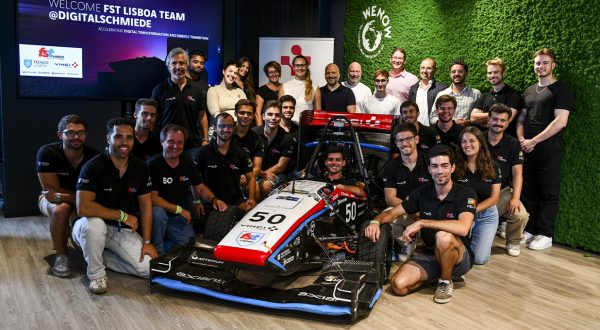Could wireless charging speed up the adoption of electric cars?
Reading time: 3 min
Wireless charging technology holds great promise and could help remove the barriers to the take-up of electric cars.
![]()
When considering whether to choose an electric car (EV), range is something that often holds people back in the decision-making process. Drivers are also concerned about the capacity, weight, and cost of batteries along with the availability and power output of charging stations.
But there’s a technology out there that could create a brand-new paradigm: wireless charging. What it means is that users no longer need to connect a cable from their vehicle to a charging point to top up their car or electric bike battery. All they have to do is position the car on top of a wave transmitter, a solution selected by Tesla and Porsche, or simply place an electric bike in its terminal, which not only provides secure docking but also charges it without physical contact.
Users expect electric cars to be “just as easy to use as internal combustion engine cars and at lower cost to society”
This electric bike charging solution was installed by Citeos (VINCI Energies) on the Ecully Ecole de Management (EM) business school campus near Lyon. The transmitter built into the terminal transfers useful energy to the receiver – the bike’s battery – without any manual connection. Eliminating the need to connect cables is good. But eliminating the static charge point and instead charging the car wirelessly while on the move is even better.
Such is the prospect opened up by the Vedecom institute. This research centre, dedicated to urban mobility solutions, has tested a transmitter system embedded in the road. Following initial conclusive but limited tests, it is working on increasing the power output to 20 kW which would make it possible to dynamically charge a car travelling at speeds of 100 km/h.
New prospects
“It’s a very interesting development,” says Julien Lemoine, project manager at Citeos, since it would “distribute the power needed to charge the entire car fleet.” Arnaud Banner, technical and innovation director at Omexom, considers that the solution trialled by Vedecom “opens up new prospects” such as the possibility of integrating charging systems into the urban environment and into future electric motorways.
The advantage of wireless charging should perhaps primarily be considered from a usage point of view. In other words, electric car take-up requires a real understanding of users, who expect “EVs to be just as easy to use as internal combustion engine cars and at lower cost to society,” says Banner.
Learn more:
https://www.latribune.fr/


